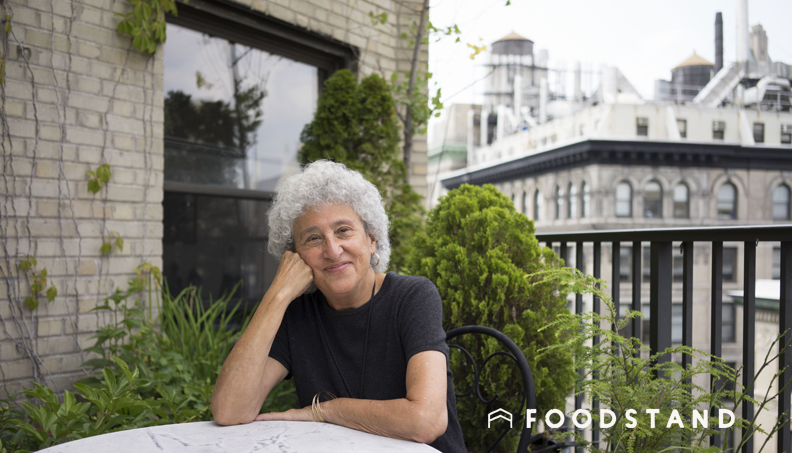Professor Marion Nestle teaches in the Department of Nutrition, Food Studies and Public Health at New York University. She is an internationally known and acclaimed public health advocate, and has authored a number of award-winning books such as Food Politics, Why Calories Count, Eat Drink Vote, and Soda Politics.
Want to meet her in person? Please join us tomorrow night (Tuesday, September 20th) in NYC for a riveting book chat with the one and only Dr. Marion Nestle! We’ll be discussing the soda industry, sugar, who’s doing what, and what we can do to change the paradigm. In the meantime, you can check out Marion and follow her on Twitter @marionnestle to whet your food politics appetite. See you tomorrow!
Please tell us about what you do.
I teach, give lectures, do research, and write about issues related to food politics.
How did you first become interested in good eating?
I learned to love food when I discovered how terrific it tastes when fresh. I’ve told this story many times. I was at a summer camp run by a fabulous cook—everything she made was wonderful and based on produce from a large kitchen garden. It was my turn to pick vegetables for dinner. I had never tasted string beans straight from the vine before—a revelation!
What’s one piece of advice you can give to someone trying to develop better, longterm eating habits?
Eating healthfully is not all that hard: eat vegetables and fruits, balance calories, don’t eat too much junk food and enjoy what you eat!
What is the main thing we should know about big food, and how it controls what we eat?
Food companies are businesses, not social service agencies. Their primary job is to sell their products and make as much profit on them as possible.
Countries across the world are taking action on their nation’s food systems—what is one thing you would like to see the US do to help the American people eat better?
Put some restrictions on marketing to children.
How do you define good food?
Minimally processed, as fresh as possible, grown sustainably.
You take on the soda industry in your book Soda Politics. Do you think the soda industry can change for the better?
Yes, but whether it will is another matter. It could stop marketing to children, stop marketing to minorities, stop fighting public health initiatives, and stop lobbying against public health measures—for starters.
If you could get the general population to change one aspect of their eating habits, what would it be?
Smaller portions! Understand that larger portions have more calories.
What’s always in your fridge?
Milk for coffee, cheese, peanut butter, eggs, lemons, and whatever fruits and vegetables I’ve just picked up.
Is there any aspect of your diet that you’ve been trying to improve? If so, how have you been trying to improve it?
I follow my own dietary advice above. It leaves lots of room for pleasure.
How do you incorporate a variety of vegetables into your diet?
Fortunately, I love salads.
Good eating is more than what you eat, it’s also being mindful about how you eat it. What is your favorite way to enjoy a good meal?
Much of my social life involves dinners with friends and colleagues.
How do you manage to eat well when traveling or on-the-go?
It’s always possible to find something good and healthy on the go, even at airports. As I said—fortunately, I love salads.
What’s your favorite part about what you do?
I think I’m so fortunate to have a job that pays me to teach, do research, and write about food and food politics. I love doing all of that.
Good eating isn’t about perfection, it’s about habits and progress. From time to time we all eat something we don’t feel so great about later. What is your advice for those oops moments?
Enjoy them!

